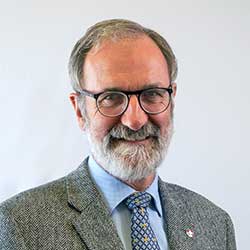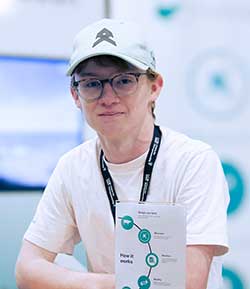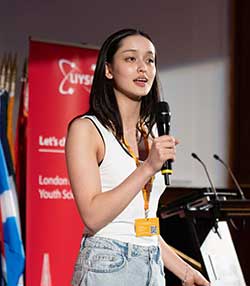Prime Minister's Space Prizes
The Government has established 2 new awards to recognise the talented people working in New Zealand's space and advanced aviation sectors and inspire young people.
On this page
The inaugural winners of the Prime Minister’s Space Prizes were announced at an awards ceremony in Parliament House on Tuesday 17 December 2024.
The winners:
Prime Minister’s Space Prize for Professional Excellence

Awarded to Robin McNeill MNZM, founder and Chief Executive Officer – Space Operations (SpaceOps) New Zealand Ltd.
Robin has designed and built ground stations in Antarctica, Tokelau and Southland.
He has played a critical role in deepening New Zealand’s space relationship with the European Space Agency. This relationship has also included scholarships and other benefits to Southland students, one of which was the Kepler Space Camp for 70 local students.
SpaceOps New Zealand also continues to collaborate with Great South’s “Youth Futures” programme. From 2008-2013 the programme helped double the number of students completing Year 13 physics in Invercargill.
Robin supervises post-graduate students undertaking space research and SpaceOps New Zealand employs undergraduate engineering students in summer jobs.
Through SpaceOps New Zealand, Robin has been responsible for growing a pipeline of engineers and employees who have the necessary skills and experience to deliver future impact.
Prime Minister’s Space Prize for Student Endeavour
 Joint winner: Cairo Akehurst is in Year 12 at Christchurch’s Cashmere High School
Joint winner: Cairo Akehurst is in Year 12 at Christchurch’s Cashmere High School
Cairo’s research project involved improving the accuracy of satellite data to track methane emissions through a unique innovative approach.
This work will significantly enhance the spatial resolution of the outputs from MethaneSAT and its usefulness to end users and offshore meat and dairy products.
Cairo has developed a commercially viable product and a start-up business called Cattle Credit to scale up his idea for use on farms. His next steps include developing industry partnerships, engaging potential customers, and securing pre-seed funding.
 Joint winner: Tianyi Mathur is in Year 13 at Wellington’s Scots College
Joint winner: Tianyi Mathur is in Year 13 at Wellington’s Scots College
Tianyi’s research project focused on how cells communicate with each other to create organised patterns.
Tianyi developed a computer simulation to mimic the process of communication between cells.
Judges saw significant potential to adapt Tianyi’s model for simulating coordinated, dynamic systems to optimise technology suited to the complex and often extreme conditions of space exploration.
Practical applications for the space sector could include biosensors, autonomous systems, or new materials that could organise or repair themselves automatically, which could be vital in spacecraft or in extraterrestrial environments, and would avoid the need for impractical traditional manufacturing infrastructure in space.

